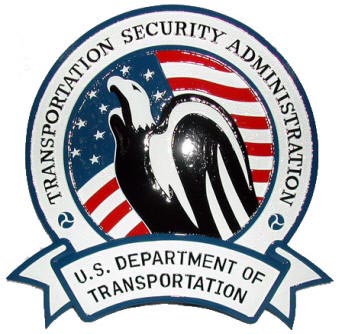| Travel Tips |
CBP, TSA Provide Reminders And Travel Tips To Summer Travelers
|

In anticipation of the summer travel season, U.S. Customs and Border Protection (CBP) and the Transportation Security Administration (TSA) joined efforts to provide travel tips to summer travelers.
CBP and TSA recently implemented initiatives to facilitate travel while protecting the homeland against various threats. With the summer travel season in full swing, the two agencies want to educate travelers about these initiatives in order to make their travel experience a more enjoyable one.
CBP reminds travelers:
- U.S. citizens traveling abroad must have approved travel documents when returning home.
- The Western Hemisphere Travel Initiative (WHTI) requires U.S. and Canadian citizens, age 16 and older to present a valid, acceptable travel document that denotes both identity and citizenship when entering the U.S. by land or sea. U.S. and Canadian citizens under age 16 may present a birth certificate or alternative proof of citizenship when entering by land or sea.
- A radio frequency identification (RFID)-enabled travel document such as a U.S. Passport Card, Enhanced Driver’s License/Enhanced Identification Card or Trusted Traveler Program card expedites entry and makes crossing the border more efficient.
- All nationals or citizens of VWP countries are now required to have an approved Electronic System for Travel Authorization (ESTA) prior to boarding a carrier to travel by air or sea to the U.S. under the VWP. CBP continues to facilitate the entry process for Visa Waiver Program (VWP) travelers into the U.S. by implementing the Electronic System for Travel Authorization (ESTA) requirement on January 12, 2009.
- Other programs that facilitate the entry process for international travelers coming into the country to visit, study or conduct legitimate business include “Trusted Traveler Programs” such as SENTRI, NEXUS and Global Entry. For more information about these programs, please visit www.cbp.gov.
Additionally, CBP offers the following travel tips:
- Tip #1 – To avoid fines and
 penalties associated with importing prohibited items, travelers should familiarize themselves with the “Know Before You Go” section of the CBP website (http://www.customs.gov/xp/cgov/travel/vacation/kbyg) penalties associated with importing prohibited items, travelers should familiarize themselves with the “Know Before You Go” section of the CBP website (http://www.customs.gov/xp/cgov/travel/vacation/kbyg)
- Tip #2 – Be prepared to declare all items acquired abroad. Travelers should prepare for the inspection process before arriving at the inspection booth and have their approved travel documents available for the inspection.
- Tip #3 –Monitor border wait times for various ports of entry. Travelers should consult the CBP website site for hourly updates when planning trips and identifying periods of light use/short waits. During periods of heavy travel, border crossers may wish to consider alternative, less heavily traveled entry routes.
- Tip #4 – Build extra time into the trip in the event of crossing during periods of exceptionally heavy traffic.
- Tip #5 – Know the difference between goods for personal use versus commercial use. For more details, visit www.cbp.gov/travel.
- Tip #6 –Do not attempt to bring fruits, meats, dairy/poultry products and firewood into the U.S. from Canada without first checking whether they are permitted.
- Tip # 7 – During the holiday travel season, international border crossers should continue to expect a thorough inspection process when entering the U.S. from Canada. Understand that CBP officers have the authority to conduct enforcement examinations without a warrant, ranging from a single luggage examination up to and possibly including a personal search.

TSA reminds travelers:
- During the busy summer travel season, TSA reminds travelers to be prepared and plan ahead for security. Passengers who are prepared for the security process can streamline the process overall at the checkpoint.
- Since the attempted terrorist attack on Christmas Day, TSA has accelerated its deployment of Advanced Imaging Technology (AIT) and expanded the use of Explosive Trace Detection (ETD) technology.
- Passengers should be prepared to encounter security measures that could occur on a random basis at various locations in the airport environment. This could include the use of ETD to screen carry-on items and hands-as well as explosives detection canine teams, bottled liquid screening technology, behavior detection officers, and AIT.
- Our highly trained security officers are prepared for the increase in passenger volumes and are dedicated to ensuring safe travels. TSA will be fully staffed and prepared to address the needs of the traveling public this summer.
Additionally, TSA offers the following travel tips:
- Tip #1– Passengers can help speed up the
 screening process by packing their carry-ons in an organized manner. This helps our officers efficiently see what's inside to quickly process it through screening. screening process by packing their carry-ons in an organized manner. This helps our officers efficiently see what's inside to quickly process it through screening.
- Tip #2 – Existing procedures like 3-1-1 and removing shoes and laptops for screening remain in place.
- Tip #3 – TSA has Family Lanes at every security checkpoint, which are designed for passengers with special needs of those who may need more time to process through the security checkpoint.
- Tip #4 – Remember these three simple steps for security:
- Have your ID and boarding pass out and ready
- Take off shoes and jackets
- Take out liquids (in a baggie) and laptops
For more information please visit www.CBP.gov or www.TSA.gov.
U.S. Customs and Border Protection is the unified border agency within the Department of Homeland Security charged with the management, control and protection of our nation's borders at and between official ports of entry. CBP is charged with keeping terrorists and terrorist weapons out of the country while enforcing hundreds of U.S. laws.
|